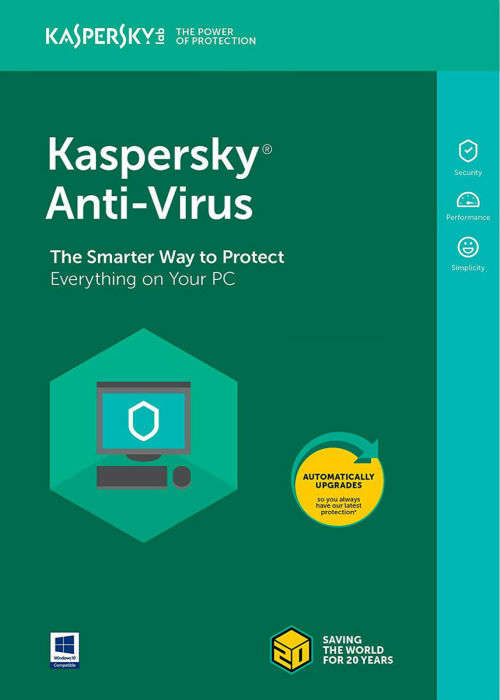

A copy of the file is moved to Quarantine when that happens. If a file cannot be disinfected for any reason, it is deleted. Further access to the file is allowed only if the file is not infected or is successfully disinfected by the application. Kaspersky Anti-Virus intercepts each attempt to access a file and scans the file for known viruses and other malware. The component starts upon startup of the operating system, continuously remains in the computer's RAM, and scans all files that are opened, saved, or launched on your computer and all connected drives.

What follows is a description of the logic of how the protection components interact when Kaspersky Anti-Virus has been set to the mode that is recommended by Kaspersky specialists (in other words, with the default application settings).įile Anti-Virus prevents infection of the computer's file system. Some specific tasks that should be run occasionally (such as removal of traces of a user's activities in the operating system) are performed by using advanced tools and wizards.
#Kaspersky antivirus update
To keep Kaspersky Anti-Virus up to date, you need to update the databases and application modules used by the application. This is necessary in order to prevent any possible spreading of malicious programs that have not been discovered by protection components, for example, because a low security level was set or for other reasons. In addition to the real-time protection provided by the security components, we recommend that you regularly scan your computer for viruses and other malware. You can enable and disable protection components, and configure their settings. Various functions and protection components are available as part of Kaspersky Anti-Virus to deliver comprehensive protection.Įach type of threat is handled by a dedicated protection component. Kaspersky Anti-Virus provides comprehensive protection against various types of information security threats.


 0 kommentar(er)
0 kommentar(er)
